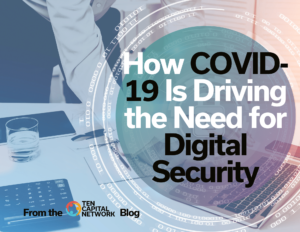
The Future of Digital Communities
3 min read The Future of Digital Communities. COVID-19 imported the future that we were planning on for around 2030- a future where everybody is

3 min read The Future of Digital Communities. COVID-19 imported the future that we were planning on for around 2030- a future where everybody is

2 min read How COVID-19 Is Driving the Need for Digital Security COVID-19 is driving rapid adopting of SaaS technology in sectors ranging from telehealth,

1 min read What are the COVID-resistant businesses? As businesses continue to close and others face uncertainty many startups find themselves wondering how they will

1 min read As the world works toward a vaccine, COVID has the potential to shape what the future of vaccines looks like. It’s not